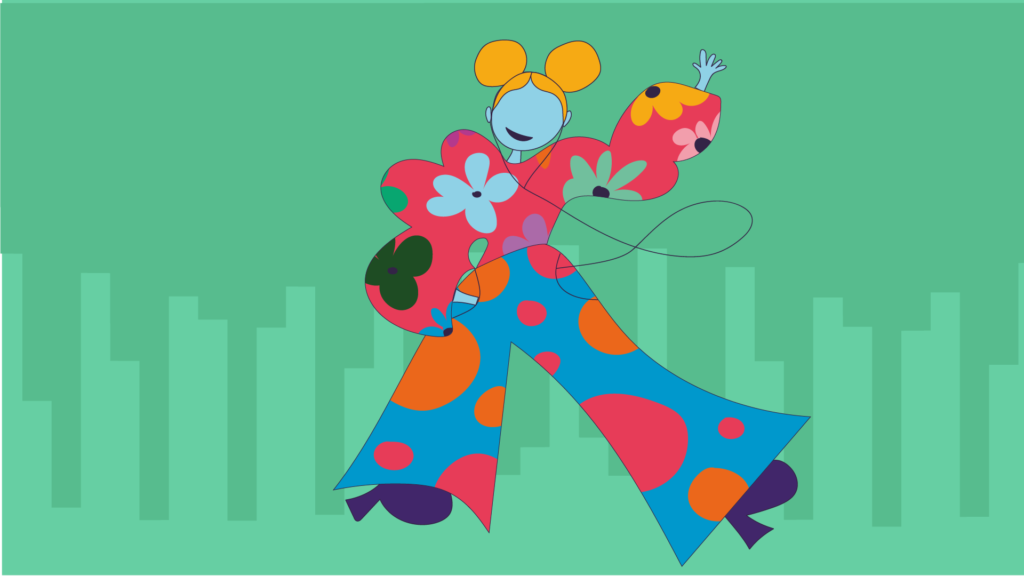Express Myself
We are driven to express our identity (see value: understanding myself). Self-expression is the explicit representation of our thoughts, attitudes and feelings about who we are, which can be achieved through the explicit words, decisions or actions that express our personality, or more subtly through our facial expressions, movements, clothing, possessions or objects.

Expressing ourselves helps us to validate our identities and categorise ourselves in whichever way we see fit, enabling us to understand how we fit in with the wider world. Psychologically, we are motivated to be authentic because we experience distress and dissonance when we act in a way that is inconsistent with the beliefs we have about ourselves (see having autonomy)
Self-expression is beneficial for mental health because it facilitates social connections; sharing personal stories and beliefs with others enables us to bond with people, and when our thoughts and feelings are shared we feel socially accepted and validated.
Having the freedom to self-express is generally regarded as important in our western society where we have an emphasis on individualistic norms and goals, but less so in cultures when the emphasis is on community goals.
In a digital age, social media platforms become a key outlet for self-expression. It is here that we showcase our personality, express our opinions and post content about ourselves. Online platforms afford us with the time to think, adapt and reflect a polished version of ourselves whilst reaching out to a wider audience. We spend more time talking about ourselves online than we do offline, where an estimated 60% of self-talk in our offline conversations rises to approx 80% on social media.
Although as humans we are driven to be authentic, it is natural to want to present a polished version of ourselves. In an age where filters, captions and photo editing are commonplace, it becomes easy to portray a highly idealised or sometimes altered version of reality.
The issues with excessive editing are twofold; we cannot always detect the authenticity of others, and we may feel insecure comparing ourselves to others (which we naturally do as humans). It makes us feel compelled to fit in with the norm, thus exacerbating the problem. The problem existed before social media in magazines; but what has replaced highly polished and edited magazine pictures, are constant and never ending stream of images across a range of platforms in most aspects of daily life.
Worryingly, 1 in 5 British people described themselves to feel ‘depressed’ looking at their friends ‘perfect lives’ on instagram; one platform alone.
Want to learn more?
Read all the details, including how this value presents itself through who we are, what we have, do and need, in our Human Values Research Paper
